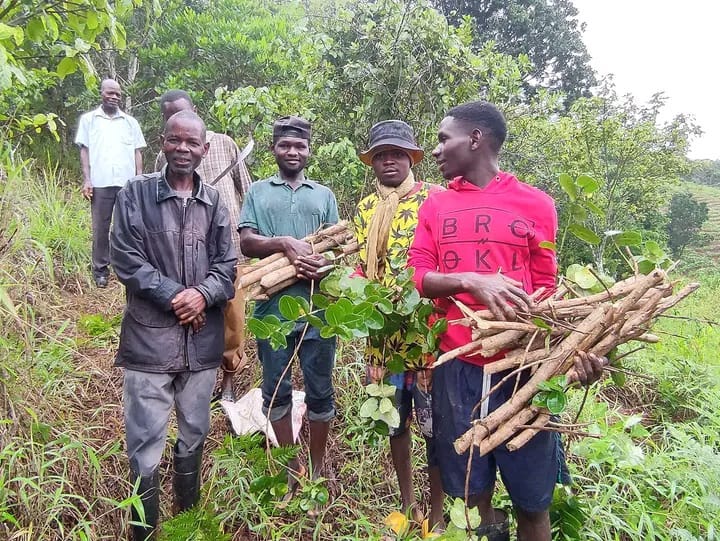Communities Collaborate to Restore Wetlands and Revive Double Winter Farming
Communities surrounding Chanjati River in Kapilimtende area, under Village Headman Jembe, Traditional Authority M’bwana, have joined forces to restore wetlands around Chanjati River-Victor Musongole.
Malawi-Communities surrounding Chanjati River in Kapilimtende area, under Village Headman Jembe, Traditional Authority M’bwana, have joined forces to restore wetlands around Chanjati River, writes Victor Musongole.
This is a community-driven approach aimed at restoring the river by planting trees and setting by-laws to protect the planted trees.
The project is aimed at reviving double winter farming, which is no longer possible due to water drying up in late September.
Modester Banda, a resident of Kapirimtende, says the situation has changed, and they are no longer as food secure as they used to be.
"We used to cultivate all year twice in winter some years, but now the water dries up in September end, which means we cannot continue with winter cropping beyond that. I used to sell vegetables towards the end of the year and was making a lot of money, but that is no longer possible. We are not food secure now," Banda said.
The communities have planted about 520 red mahogany (m'bawa) seedlings and 200 Katope cuttings along the Chanjati River with the aim of restoring the wetlands and promoting double winter farming.
According to a United Nations report in 2018, approximately 35% of the world's wetlands were lost between 1970-2015, and the loss rate has been accelerating annually since 2000.
Losses have been driven by climate change, population increase, urbanization, particularly in coastal zones and river deltas, and changing consumption patterns that have all fueled changes to land and water use and to agriculture.
The report further says the world's remaining wetlands are under threat due to water drainage, pollution, unsustainable use, invasive species, disrupted flows from dams, and sediment dumping from deforestation and soil erosion upstream.
Chikabachi Harawa, another resident of Kapirimtende, hopes that the project will help reduce malnutrition in the village.
"I used to harvest more than 5 bags weighing 50 kilograms, and my family was food secure then, unlike this time. But with this intervention, I believe that our village will be practising farming all year round, and this will reduce malnutrition," Harawa said.
The project was implemented by Temwa Malawi Organization in partnership with four communities, including Jembe Village, and aimed at restoring wetlands and protecting existing natural forests.
Malumbo Soko, Temwa's Malawi Project Officer responsible for Forestry and Carbon Balance, said the organization supported the communities by providing them with trees and guiding them on how to approach the project.
"This is a community-driven approach. They came up with the intervention, and we gave them trees. We believe that the 520 red mahogany (m'bawa) seedlings and 200 Katope cuttings they planted along the Chanjati River will go a long way to restore their river," Soko said.
The village headman, Jembe, praised the project and said he hoped that the bylaws would help protect the trees planted.
"Some years ago, our river had enough water, which was used for irrigation. But we no longer do irrigation farming because the river dried up due to the wanton cutting down of trees along the Chanjati River. But with support from Temwa, we have planted trees along the river. We have hope our double winter cropping will be revived, and we should recommend Temwa organization," he said.
Environmental activist Mathews Malata commended the communities' approach to restoring wetlands and protecting natural resources, saying it was the only way to sustainably manage natural resources in the country.



